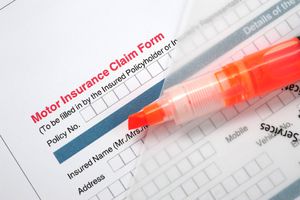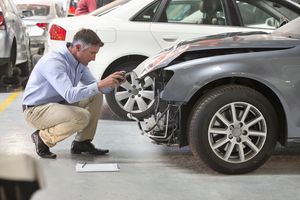Learn How to Choose Your Auto Insurance Deductible
- 01What does your emergency fund look like?
••• Is your emergency fund totally depleted? Or are things in order? You need to consider your bank account when deciding on a deductible. A $1000 deductible is not going to be helpful to you if you do have a claimand cannot afford the deductible. Getting a loan for the repairs is not a good option and unfortunately, accidents do happen. If you take on the risk of a $1000 deductible, be prepared to be able to pay for it when the time comes. It will be extremely frustrating being unable to drive your vehicle because you did not plan for actually having to cover the out of pocket expense. - 02What is the value of your vehicle?
••• The value of your vehicle makes a big difference in what deductible makes sense. The more expensive your vehicle, often the more it costs to insure. A high deductible makes sense on a high value vehicle because the savings can be significant.If you are one of those people who can’t see going without physical damage coverage on your aging vehicle it may no longer make sense to carry a high deductible. For example, if your 10-year-old vehicle still has comprehensive coverage, you probably don’t want to carry a $1000 deductible because the value of the vehicle is likely within a couple thousand dollars of the deductible. Plus, the savings of a $1000 deductible verse a $500 deductible on comprehensive may only be a few dollars every month. Same goes for $500 verse $100 deductible for comprehensive on an older vehicle, the price may not vary much. - 03What are the various costs for different deductibles?
••• Check with your insurance agent or online to see what different deductibles cost. If it will take more than three years to recoup your money, you are probably better off going with the lower deductible.To calculate your savings, quote your collision deductible at both $500 and $1000. Determine the savings and calculate how long it will take the savings to add up to the $500 difference. If you can save $500 in premium in three years, it might be a good option to go with the higher deductible. Nobody knows if you will actually have a claim in the three-year period. The savings could be money in your pocket or you might spend the next three years recouping your money. - 04What is your risk?
••• What are your chances of having a claim? Everyone has some driver risk no matter how good of a driver you are. Think about whether or not you always drive during peak times. Do you frequent school parking lots or busy intersections? Are you narrowly missing deer on a regular basis? If the likelihood of having a claim is high, you might be better off with a low deductible. At the same time, if you are a high-risk driver the savings could be substantial for going with a high deductible. Again it is a good idea to get quotes on your different deductible options. - 05Is a vanishing deductible a good option?
••• Vanishing deductibles are becoming a popular option, but whether it is a good option varies with who you ask. Basically if paying a deductible would cripple you financially the vanishing deductible could be helpful. You do pay an extra insurance premium to get the reduction in deductible. You would be better off saving money in your emergency fund. If you constantly struggle with saving an emergency fund, a vanishing deductible is a viable option. - 06Does it make sense to choose a different deductible for different coverage?
••• Yes, often people opt for different deductibles for different coverage. Comprehensive is typically a cheaper coverage so many go with a lower deductible. Collision is often pricier and makes more sense to go with a higher deductible. For instance, you could go with $100 deductible on comprehensive and $500 on collision. With insurance costs going up many people are increasing their deductibles to $500 on comprehensive and $1000 on collision. Zero deductibles are on the endangered species list because very few insurance carriers offer no deductible.To keep things simple, it is recommended to keep the same deductibles on all your vehicles. It is ok to opt for different coverage, but if you have two vehicles with full coverage go with the same deductibles on both. It can be very confusing and frustrating if you select different deductibles per vehicle. Know what your deductibles are and be prepared to pay up when you go to repair your vehicle after a loss. Hopefully knowing the answers to these questions will help you select the right deductible for your situation.
Picking your auto insurance deductible is a highly personal decision. It depends on your personal comfort level and the amount of risk you are willing to take. It is really up to you to weigh your choices and determine the best option for you and your family. An insurance agent can give you some of the information you need to make an educated decision, but do not let your agent decide for you. Here are six questions to get the answers to when it comes to choosing auto insurance deductibles.







